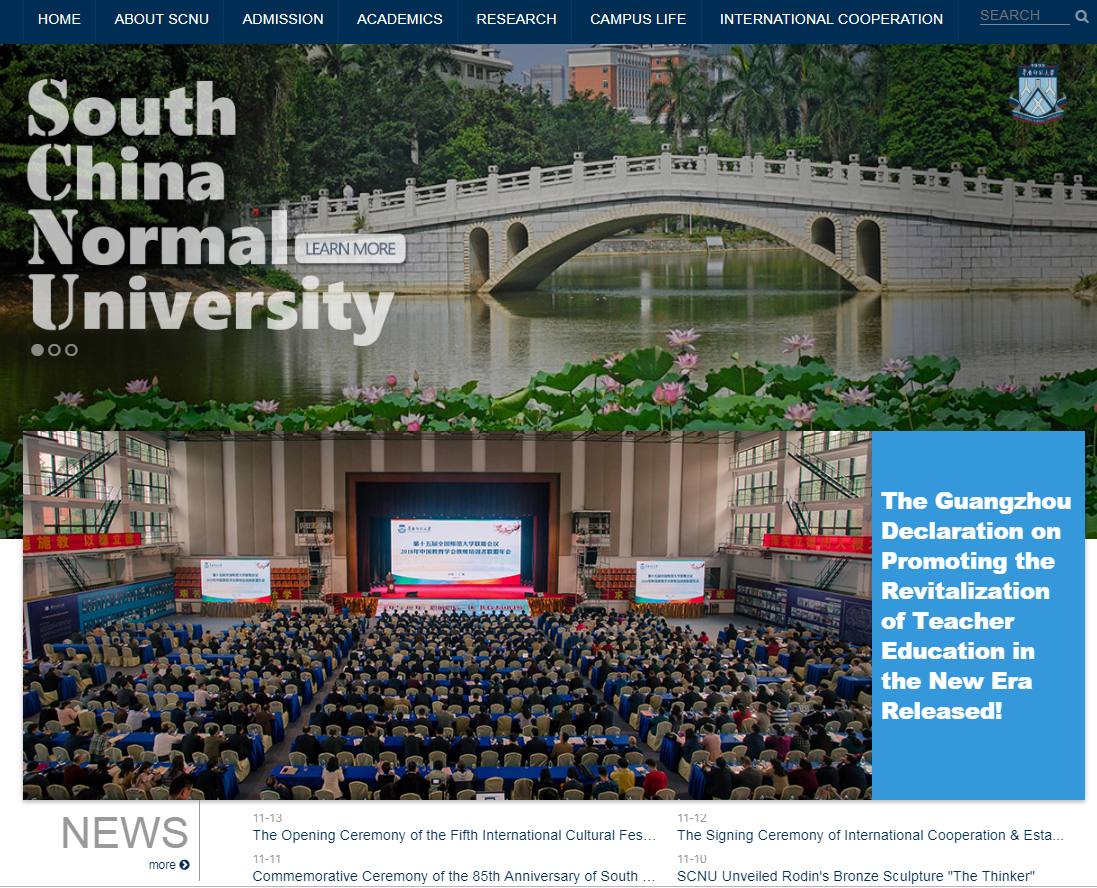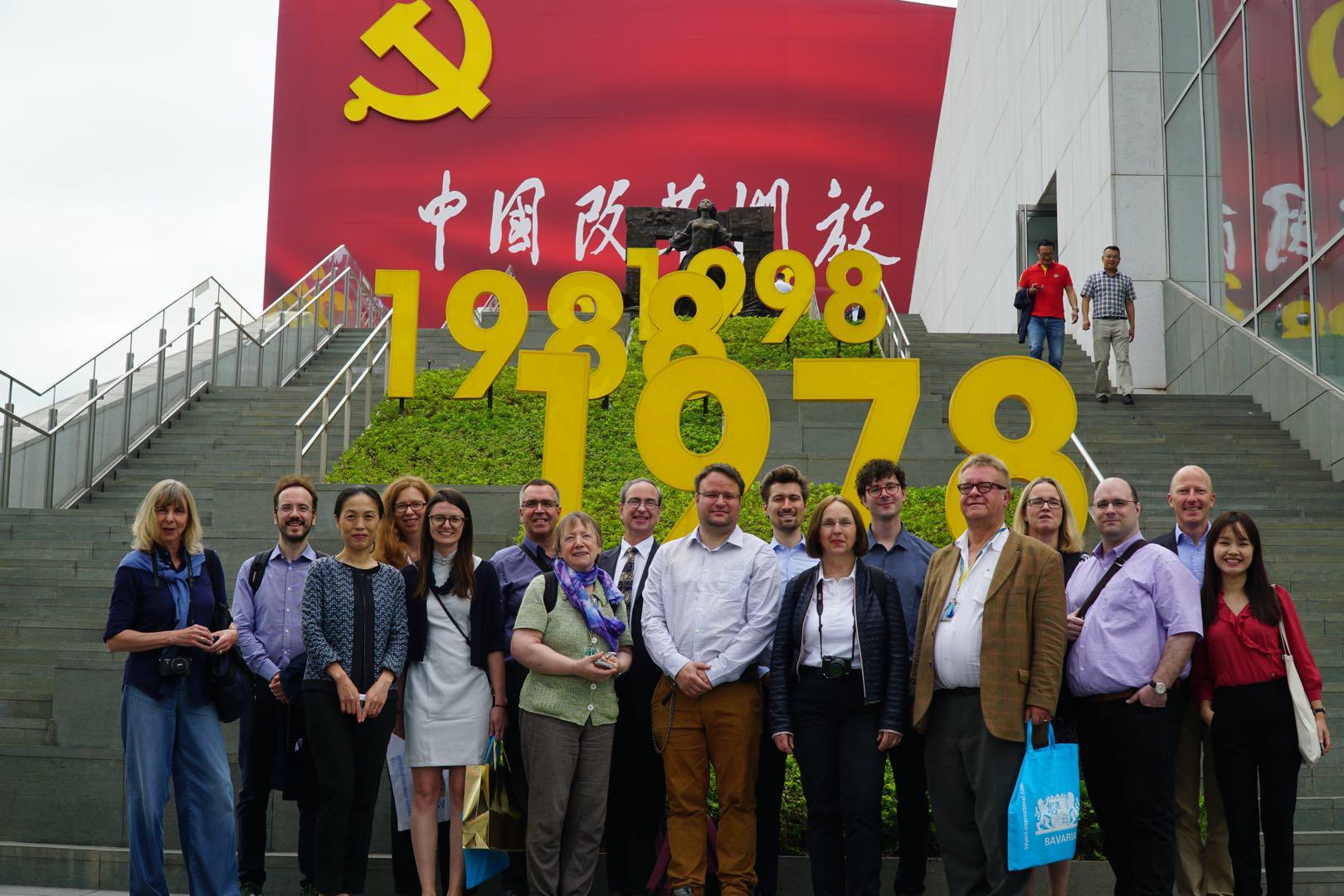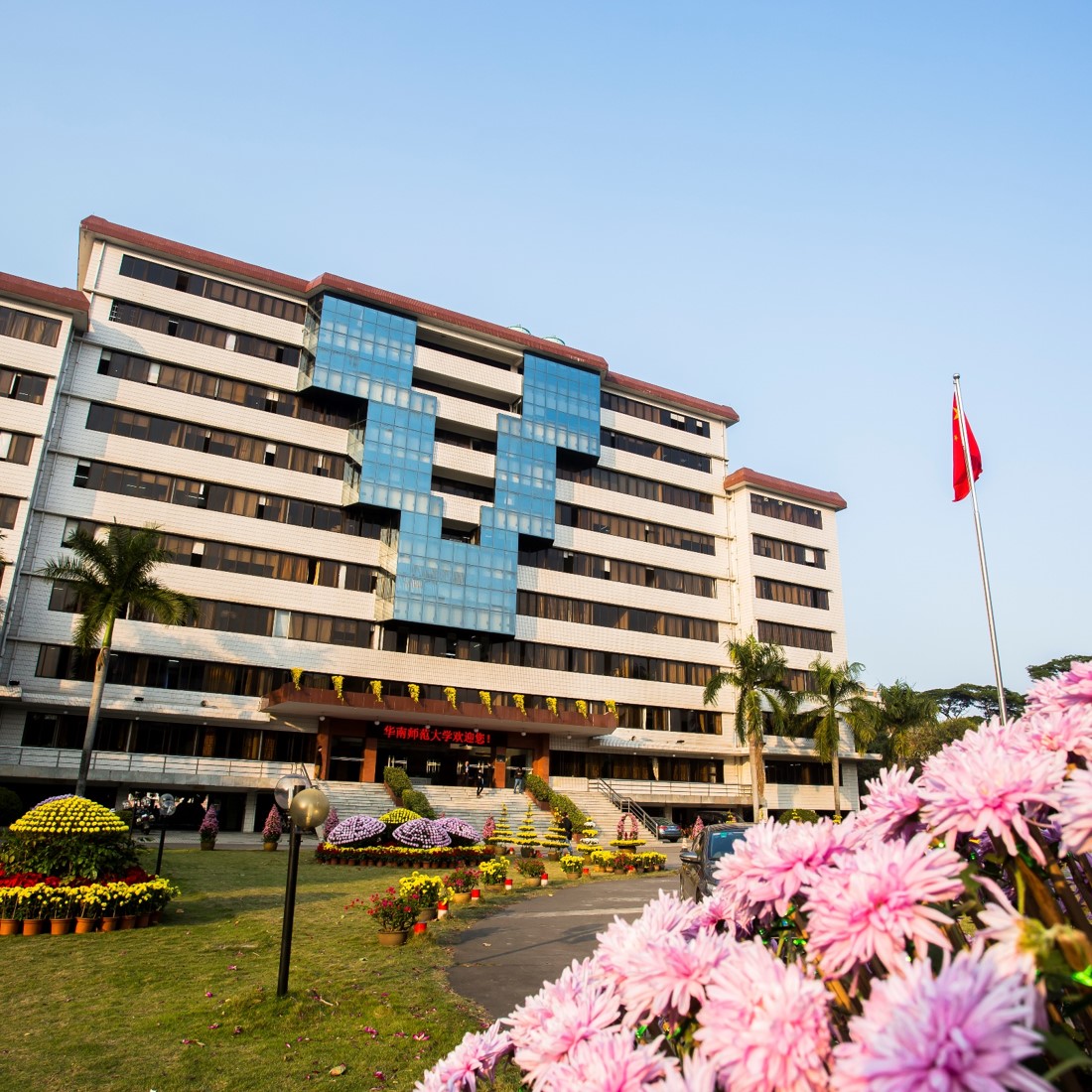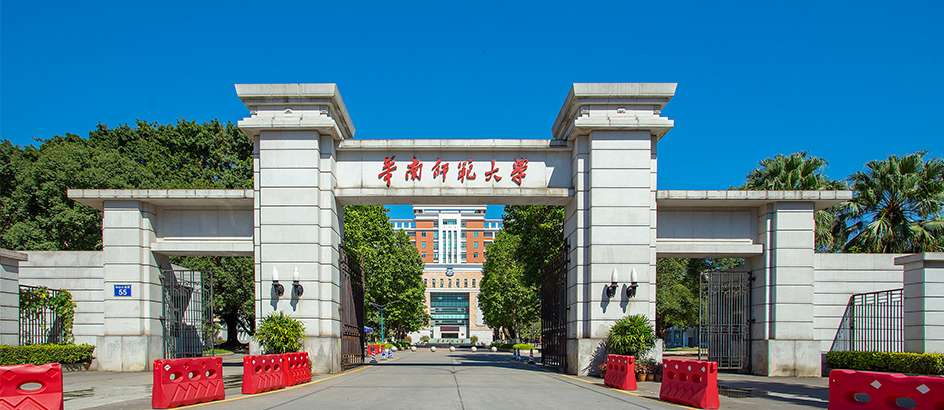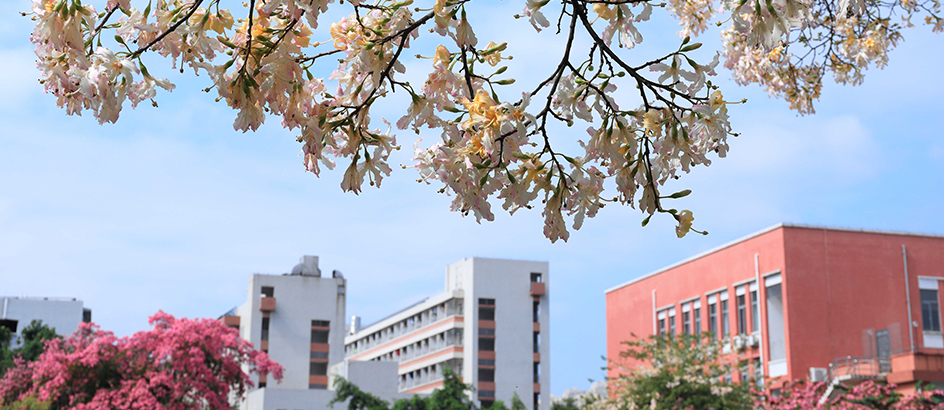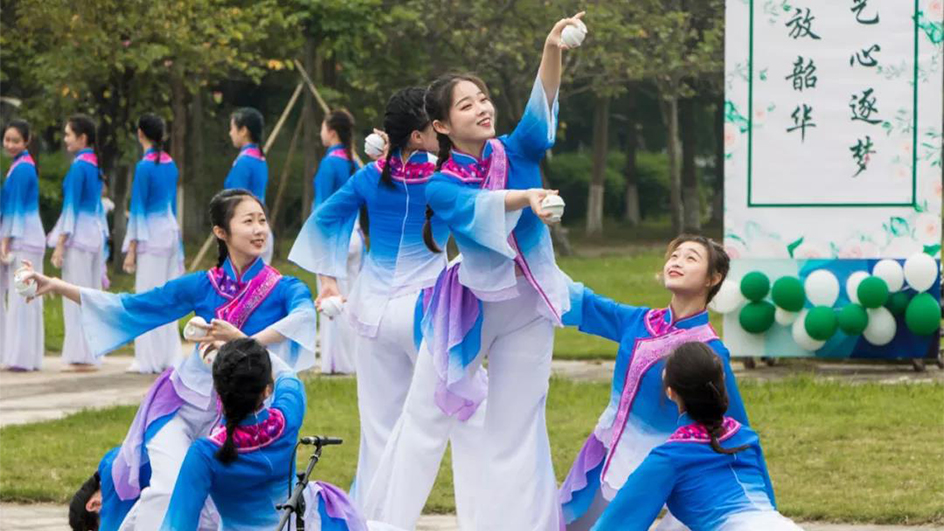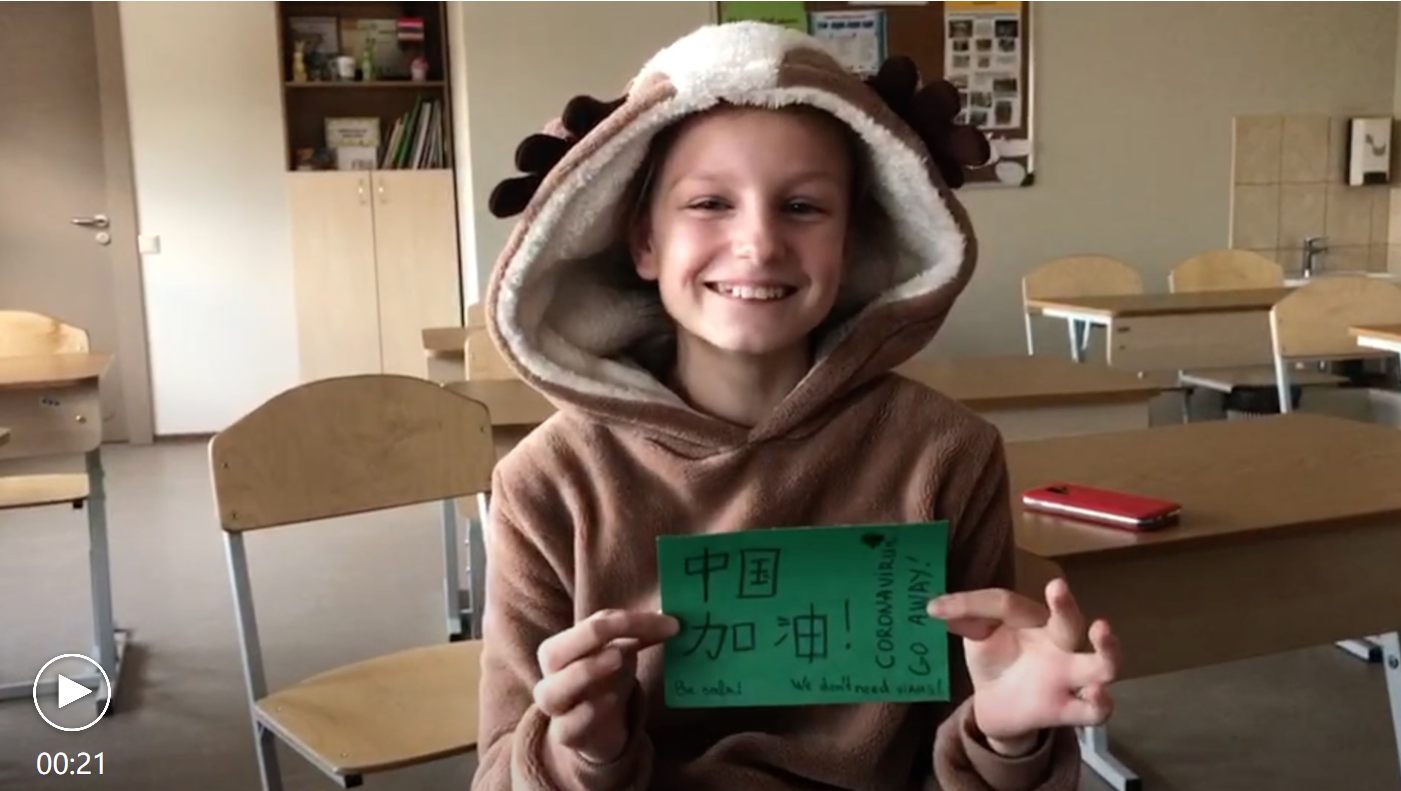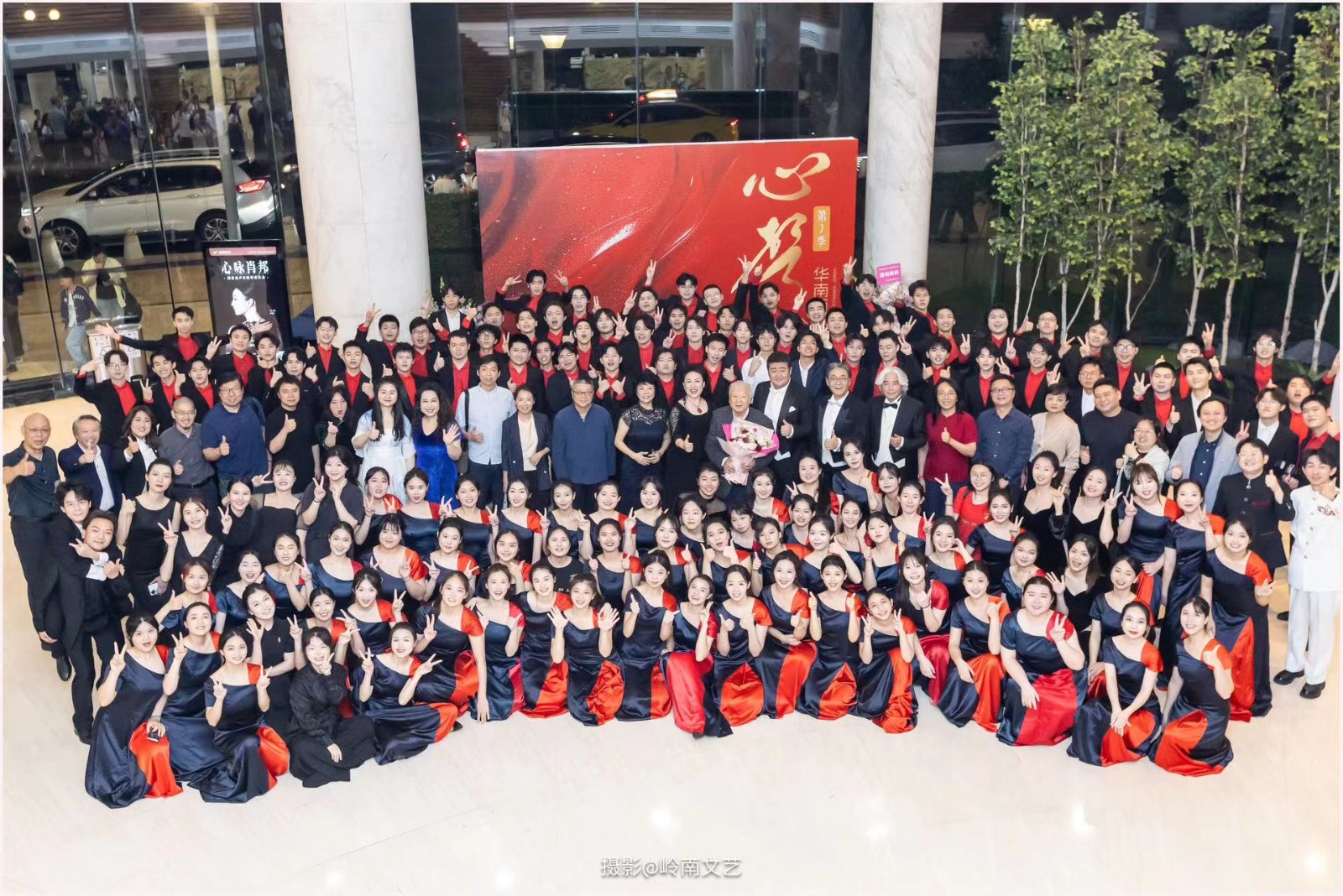
Likes
Located on Ersha Island, each year the Xinghai Concert Hall will prepare the stage for special performances of the SCNU choir during the last week of April. Lasting for three and a half hours, the seventh season of the concerts series was held on the evening of April 29, featuring a grand performance of 28 choral works by 14 contemporary Chinese composers. Such a collection of songs with so high a quality defined it as a pioneer in the chorus circles, underlining a unique aspect of creative conceptions and artistic comprehension from these musicians.
"Rainbow tethers the sky; Oceans embrace the shore." The exquisite lyrics warmed up the Symphony Hall, serving as an opening of the SCNU Choir's 7th season of "Chords of Soul" Choral Concert. The concert was divided into two halves, both featuring 14 original Chinese choral compositions of varying styles, and performed respectively by a mixed choir, a choir of female singers, a choir of all male singers, and the alumni ensemble of members from SCNU Choir.
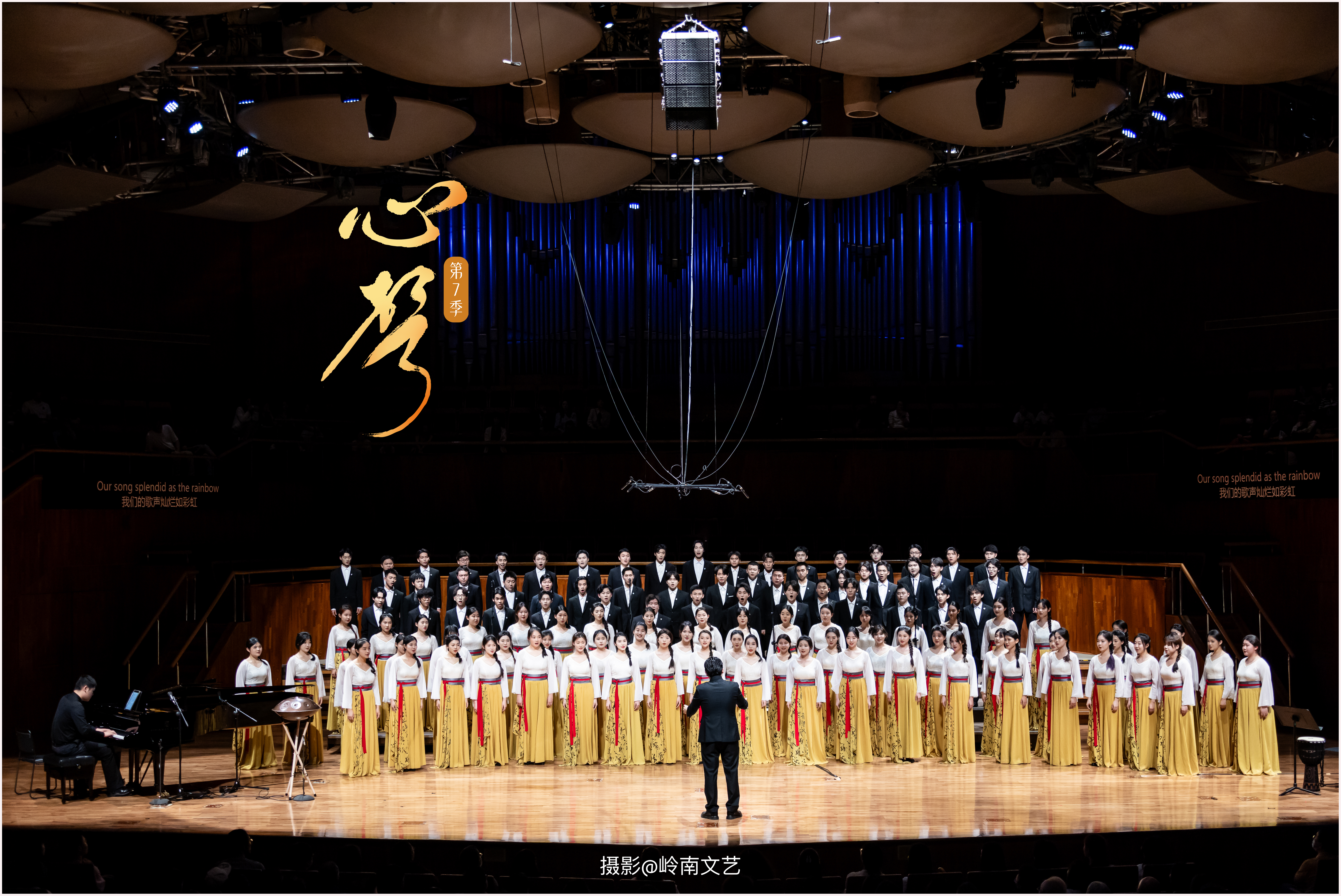
The song "We Sing in Love" raises the curtain at the "Chords of Soul" Choral Concert.
The night assembled a hall of guests, ranging from composers nationwide, leaders from music and education circles of Guangzhou, and Guangdong province, to the faculty and students from SCNU, as well as teachers from elementary and secondary schools. "This is the first time in Chinese chorus circles that a performance over 3 hours was presented onstage. Awesome!" says Zhang Shichao, a young composer, who gave credit to this grand, worthwhile concert.
Poetry within chorus
The concert put a spotlight on the interpretation of poetry through choral music. In the section of ancient poems, the cycle "Anthology of Yuefu poetry" came first as a treasured favorite among many listeners. Composed by Zhang Shichao, it used four Yuefu poems, arranged in the order of spring, summer, autumn, and winter, and was accompanied by pipa and Chinese drums. Another song, based on a poem by Bai Juyi, "A Visit to Qiantang Lake in Spring", focuses on expressing the essence through artistic conception. Zhu Jie, the composer, strived to capture what's beyond the lyrics. Moreover, poet Wang Wei's "On Mission to the Frontier" was put to music by Cao Guanyu. The arrangement was bold and magnificent, portraying the spectacular scenery of the frontier fortress with unique harmonies.
Then, too, the 10-minute-long modern poetry section bore a distinct mark of the times. The lyricists of "Night of Counting Stars (Yin Dongzhu)" and "My Statement of 'Vindication' (Chen Ran)" both lived during the Anti-Japanese War. While the two works each lasted for nearly 10 minutes, the choir seamlessly shifted between the roles of a poet and a martyr, telling stories of them through music and immersing the audience in history.
Ethnicity within chorus
Ethnic culture is the crystallization of a nation's history, beliefs, customs, and wisdom, as the formation of an ethnical singing style often underwent thousands of years' evolution and development. The ethnical choral works in this part of the concert mainly consist of four compositions in Yunnan ethnic minority languages, composed by Liu Xiaogeng and his two students, Guan Yu and She Qian, representing four Chinese ethnic groups - the Blang people, Hani people, Wa people, and Naxi people - respectively.
The chorus in ethnic minority styles was highly challenging, especially due to the differences in tone, singing style, and language. The SCNU choir has rigorously rehearsed, striving to restore the ethnic touch in these works. One of the four works, "Dancing Wa people", eventually won Liu's praise, for having fully captured and given expression to the temperament of the Wa people. In addition, the innovative ethnic costumes also received unanimous praise from the composers.
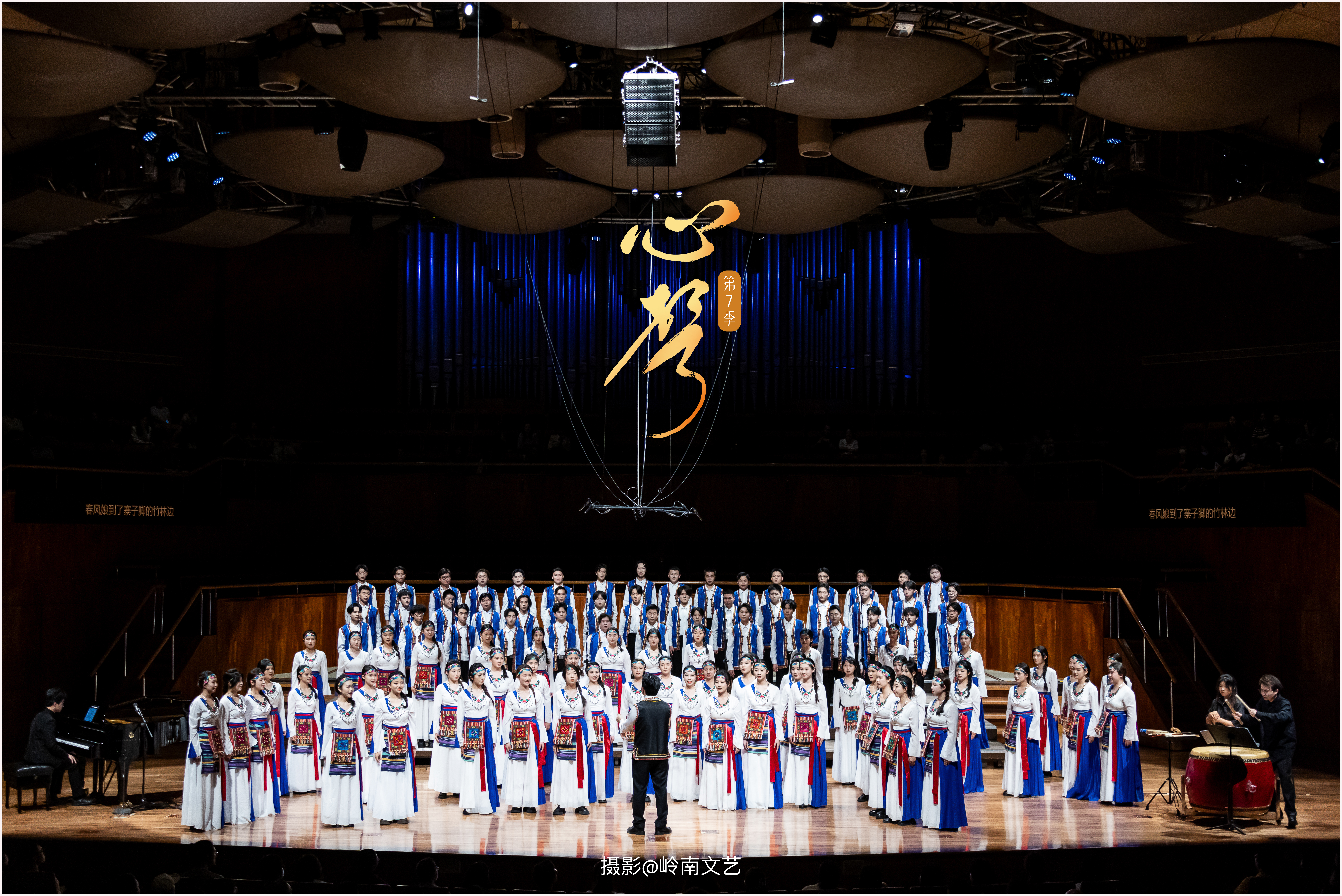
A presentation full of vividness depicts the cultures of ethnic groups.
Localism within chorus
The Guangdong-Hong Kong-Macao Greater Bay Area boasts three characteristic forms of spoken Chinese – the Cantonese, Hakka, and Chaoshan dialects. The concert included two chorus works in Chaoshan dialect, one in Cantonese, leading the audience to appreciate this distinctive Lingnan (Cantonese) culture. To begin with, the premiere of the choral versions of "Hui (Return Home)" and "Qiaopiqing (Sentiments in Qiaopi)" in this concert presented the ancient and elegant Chaozhou music style through Chaozhou zither and bamboo flute. While for the encore, the choir came back with a Cantonese song "Mumian Yao (Ballad of Kapok)", which involved a theme of the Guangdong folk song "Yue Guang Guang (Bright Moon)". Ensemble members, teachers, and alumni of the SCNU choir sang the song together, conveying warmth and closeness as one family.
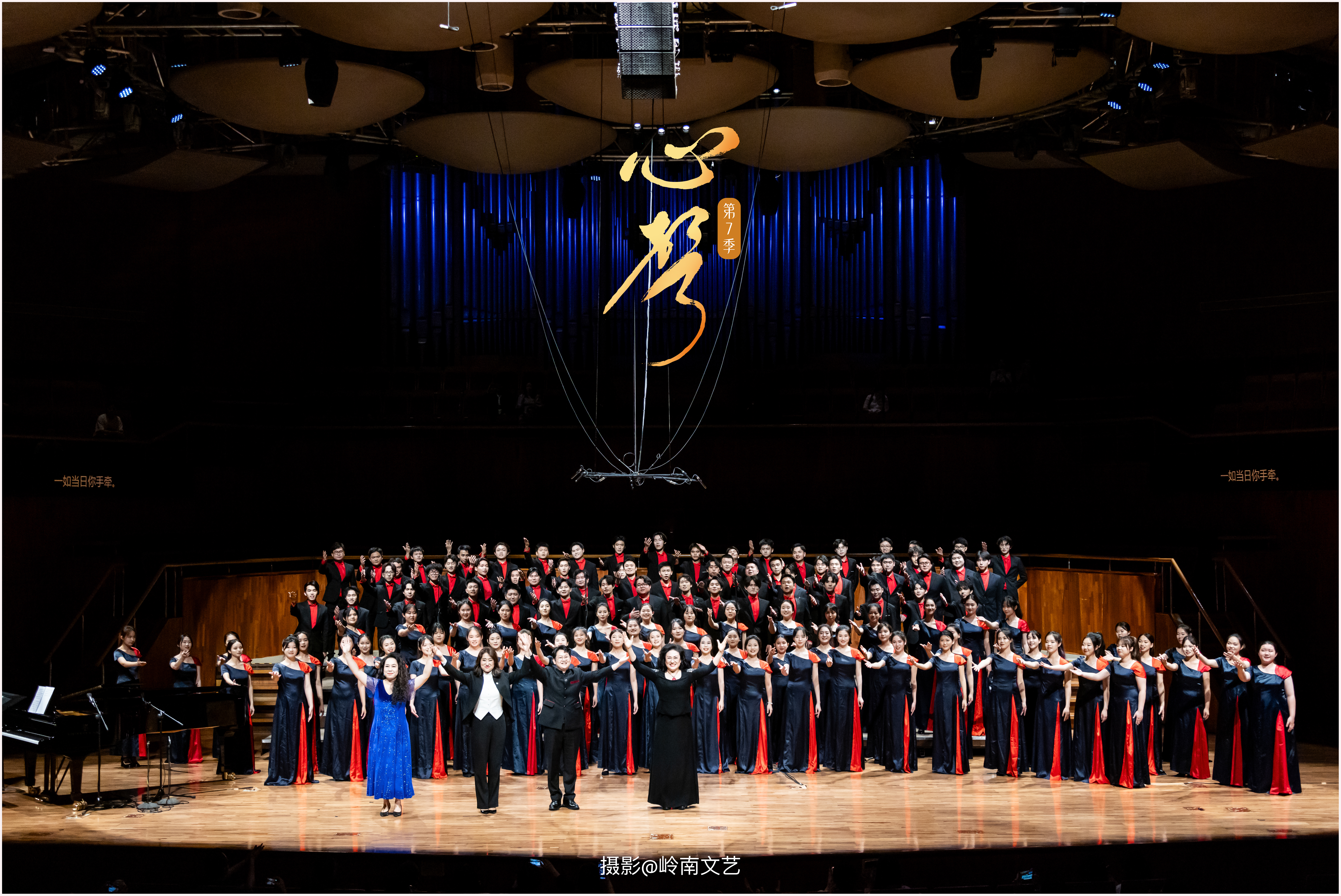
The encore, Mumian Yao (Ballad of Kapok), encompasses warmth and delight.
Peace within chorus
The finale, Ode to Peace, glittered as a highlight of the show. The legendary work is composed by Professor Lei Yusheng, composer of the Anthem of the Chinese Communist Youth League and founder of the SCNU School of Music, accompanied by the outstanding piano of Ren Pei, the excellent violin of Lei Xiaohong, and led by Ding Yi, Yang Tianjun and Zhang Xueliang, three prominent tenors from SCNU's School of Music. The song conveyed a graceful hymn for peace, and a splendid harmony for the era, raising a fortissimo movement to express love for a peaceful world, an entire China.
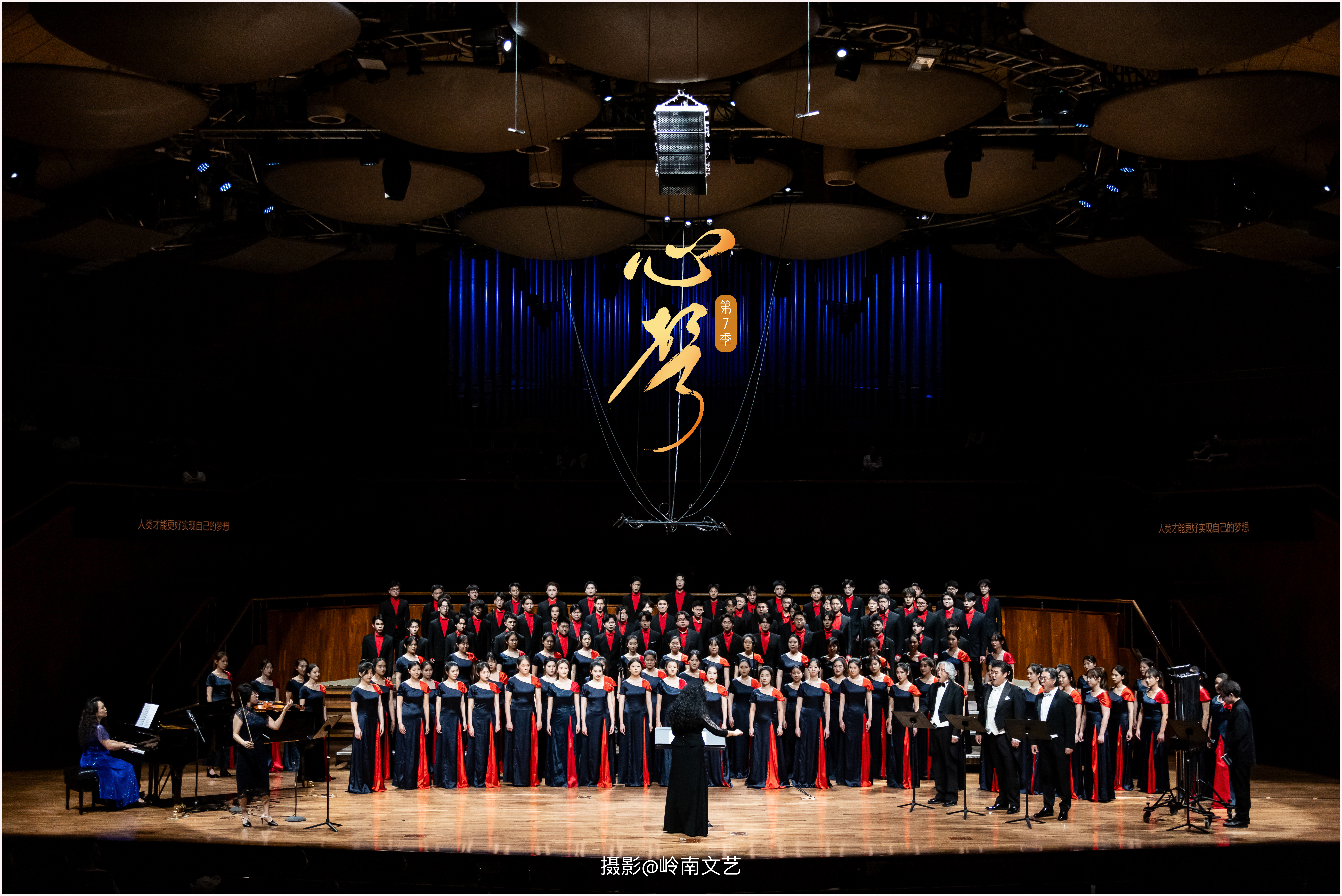
The concert climaxes with the finale "Ode to Peace".
Since its debut in 2015, this series of concerts has resounded for nine years and seven seasons, with a performing staff adding up to over 1,000, and an accumulated audience of more than 10,000, boasting a remarkable reputation in education circles as well as within society.
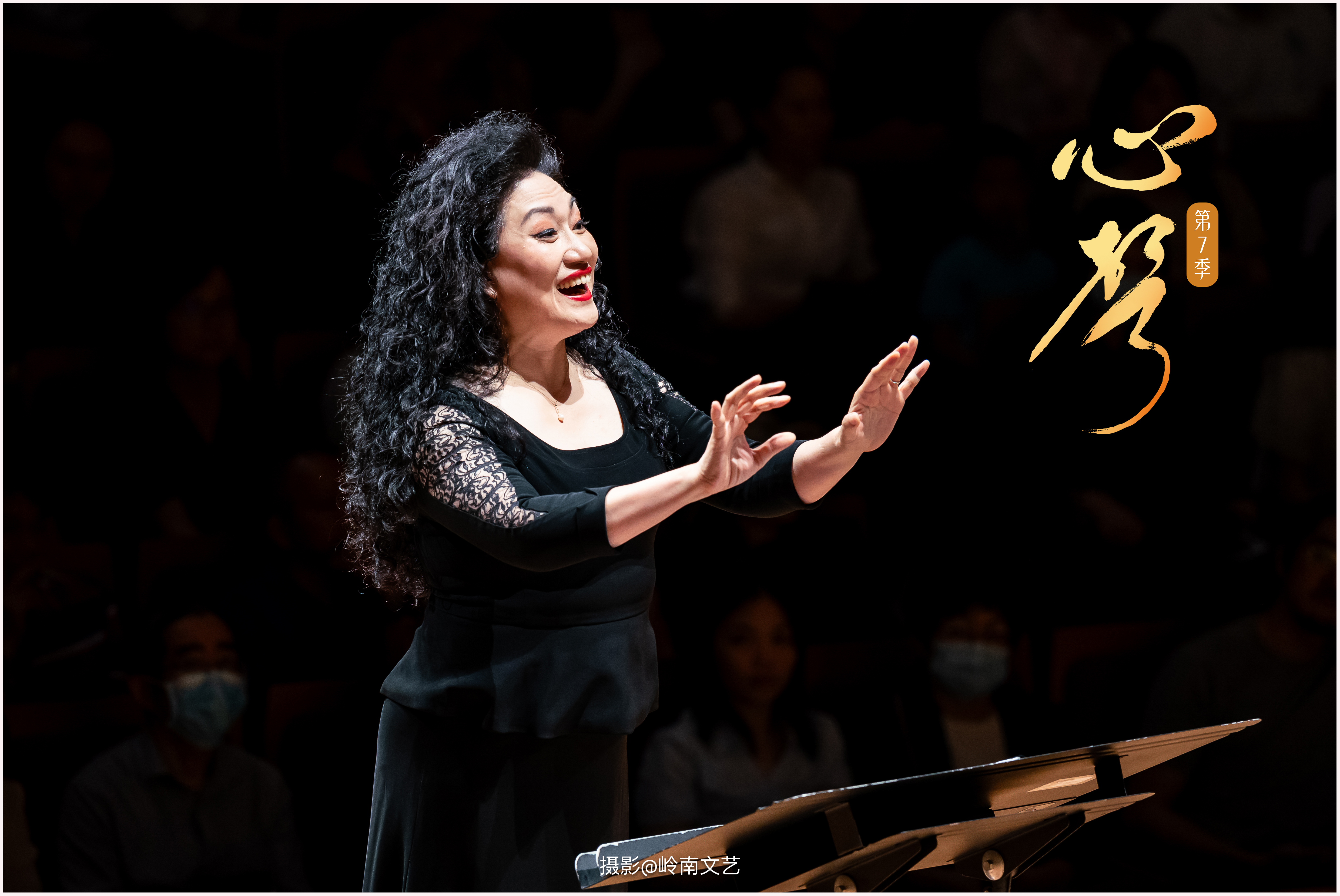
Su Yanhui, art director of the SCNU choir, conducts during the concert.
Source from SCNU Choir
Written by Liang Dingyu, Zeng Wenting
Proofread by Edwin Baak
Edited by Li Jianru
What to read next:


